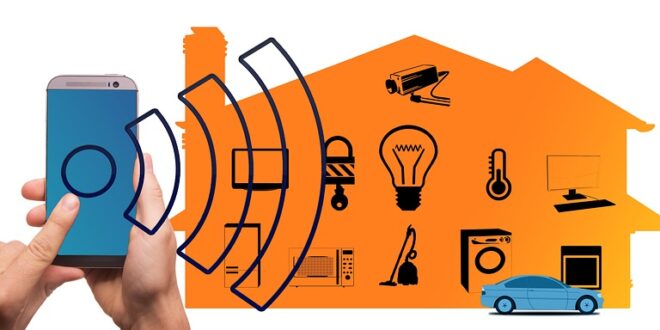10 Surprising Ways A Smart Home Will Save You Money
1. Energy-Efficient Lighting
Gone are the days of forgetting to turn off lights when leaving a room. With a smart home, your lights can be automated to switch on and off based on your preferences or occupancy. This smart feature prevents wasted energy and lowers electricity bills.
2. Smart Thermostats
A smart thermostat is a game-changer in reducing heating and cooling costs. By learning your schedule and dynamically adjusting the temperature throughout the day, you can rejoice in more comfortable living spaces without worrying about overspending on energy bills.
3. Water-Wise Irrigation
For those with a green thumb, smart home technology offers benefits beyond indoor comforts. With smart sprinkler systems, you’ll have precise control over your garden or yard watering schedule, avoiding the costly waste of water due to over-irrigation.
4. Home Security Integration
A smart home takes security a step further by integrating advanced surveillance with automated processes. By investing in smart locks, cameras, and motion sensors, you can personalize security settings and prevent unnecessary break-ins, ultimately saving money on potential losses or damage.
5. Smarter Appliance Management
Smart devices in your home enable better management of household appliances. Incorporating connected outlets and power strips allows you to schedule when appliances are on or off, preventing standby power consumption and lowering your electricity bill.
6. Enhanced Home Insurance
Some insurance companies willingly offer discounts to homeowners who implement smart home technology. By installing measures like smart smoke detectors, leak detectors, or burglar alerts, you can not only keep your home safe but also potentially save on your monthly insurance premiums.
7. Smart Shopping and Grocery Lists
A smart home can help you save on grocery bills by monitoring food inventory, tracking expiration dates, and creating automated shopping lists. With seamless integrations, you’ll avoid unnecessary grocery runs, reduce food waste, and make more efficient shopping choices.
8. Remote Energy Monitoring
Smart energy monitoring helps you stay vigilant with your energy consumption. Tracking patterns and identifying areas of waste allows you to make informed adjustments, promoting energy-saving habits that ultimately result in a more budget-friendly future.
9. Intelligent Water Conservation
By having access to real-time data on water usage through smart metering, you become more aware of your consumption. Adjusting water usage, identifying leaks promptly, and addressing inefficiencies can lead to substantial savings on utility bills.
10. Valuable Insights on Habits and Usage
A smart home provides valuable insights into your habits and usage patterns. This knowledge allows you to optimize your lifestyle and eliminate unneeded expenses, such as excessive energy use during peak hours or continuously running appliances.
 Mind Uncharted Explore. Discover. Learn.
Mind Uncharted Explore. Discover. Learn.



